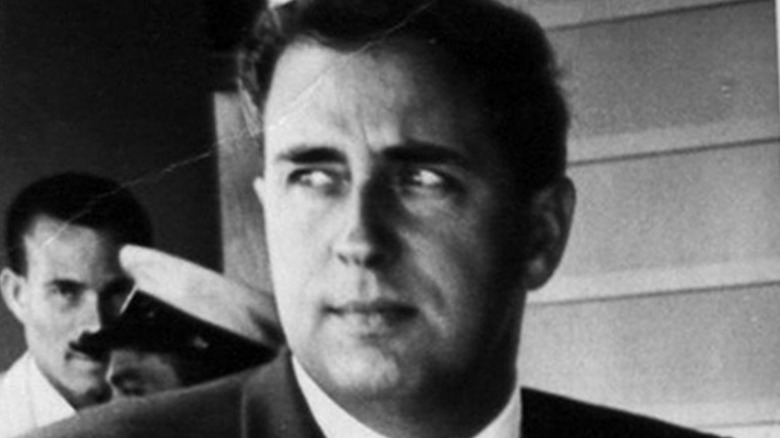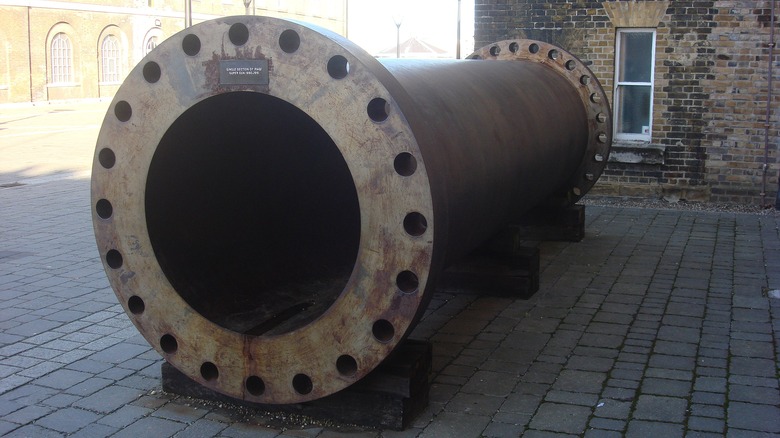The Ill-Fated Canadian Behind Saddam Hussein's Space Gun
In the history of space exploration, the majority of manned and unmanned missions have been conducted with multi-stage rockets. The cost of these spacecraft has gone down substantially over time, to the point that from the 2010s onward American astronauts have hitched their rides aboard Russian rockets (via NBC). Efforts to further reduce spaceflight cost, such as reusable spaceplanes like the Space Shuttle, have often been plagued by counter-intuitively higher costs and higher-than-acceptable failure rates. One idea that showed some promise, however, was the space gun.
This concept involves a massive cannon firing a capsule full of space-bound cargo, such as food for astronauts or satellites. The projectile would ideally either reach the thermosphere by itself or at least high enough that an integrated rocket could propel it the last few miles into space (via Today I found Out). Such a system could, in theory, eliminate the need for rockets to transport non-living material. Project HARP (High Altitude Research Project) was the Cold War program through which the United States and Canadian governments tested its viability for missiles (via Atlas Obscura). The project was headed by Canadian engineer and artillery expert Gerald Bull (above), whose desire to see the concept realized led him on a tragic path.
Gerald Bull's dream of cheap satellite launches hinged on Saddam Hussein
Bull's woes began in 1978, 11 years after Canada and the U.S. pulled their funding from HARP. He was charged with illegal arms sales to then-embargoed South Africa (via AP News), one of several countries with which he was negotiating weapons sales, including Vietnam and Iraq. Iraq in particular turned out to be the most promising in regards to his dream of seeing a true space gun realized (via BBC). Saddam Hussein, then serving as Iraq's defense secretary (per Smithsonian), was interested in the military potential of Bull's concept, as it could enable the country to both launch satellites cheaply and strike neighboring countries like Iran and Israel (via Astronautix).
After paying Bull several million dollars, the Iraqi government initiated Project Babylon in 1988, which was meant to produce three of the guns (via Smithsonian Magazine). Bull worked on Babylon for three years, until in 1990 Bull was killed outside of his home in Brussels. The identity of the attacker(s) was never confirmed, but given the assassination's careful execution, it may have been the work of Israeli Mossad agents trying to halt the weapon's progress (via The New York Times). Bull's death, combined with the onset of 1991's Gulf War, meant the project was never completed.

